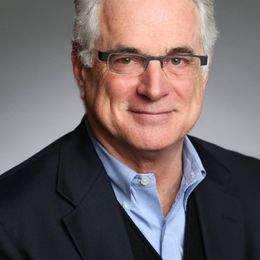How Older Voters Will Vote in the 2016 Election
Why the conventional wisdom during the conventions is wrong
How will America’s older voters vote in the 2016 Presidential election?
At first glance, recent trends suggest the statement sometimes attributed to Benjamin Disraeli, the masterful 19 century British politician and writer, is spot on: “A man who is not a liberal at 16 has no heart. A man who is not a conservative at 60 has no head.”
But the truth is a little more complicated than that. It’s a mistake to assume that boomers (now 52 to 70) and older Gen X’ers (now around 50) will mostly vote Republican because of their age.
The Age Myth
“Chronological age is just a cover variable that obliterates the great variation among people in the second half of life,” says Ursula Staudinger, a Columbia University professor of sociomedical sciences and psychology and founding director of the Robert N. Butler Columbia Aging Center.
It’s true that over the past two decades, older Americans have moved from reliably Democratic to reliably Republican in presidential elections. (At the same time, younger, increasingly diverse American voters have leaned Democratic.)
So you might think that if past is prologue, the aging of the mostly-white baby boom generation will be a voting-booth boon to Republican Party presidential candidate Donald Trump in his election fight with presumptive Democratic nominee Hillary Clinton.
What’s more, a strand of recent commentary maintains that today’s older voters are risk averse and nostalgic for an earlier era, which would tend to favor Trump’s “Make America Great Again” campaign tagline. This stereotype gained credence following Britain’s pensioners voting in large numbers to leave the European Union (EU) in the Brexit vote, while the younger generation overwhelmingly preferred staying in the EU.
A version of what happened across the pond, some say, will hold true in the U.S.
The Numbers Are Complicated
But, I believe, the demographic divide isn't a straight-line extrapolation from age group to voting booth.
For one thing, there’s a pretty big difference between the way older boomers (mostly late 50s and 60s) and younger boomers (now in their early-to-mid 50s) vote.
Older boomers, born in the late 1940s and early 1950s. have consistently leaned more Democratic than younger ones, who came of voting age in the 1970s and early 1960s, according to the Pew Research Center. Conversely, in the generation right behind the boomers — Gen X — older members skew Republican, while younger ones lean Democrat.
And although Trump now leads Clinton among Americans 65 and over, which includes people older than boomers (49 to 46 percent), Clinton’s ahead 49 to 46 in the 50-to-64 age group.
Older Voters: Not So Risk-Averse
I’m also skeptical about the risk-adverse elder stereotype.
There’s been a rise in the labor force participation rate among older workers and scholarly studies on investment behavior find a greater willingness to take risks among older income-earning Americans than their peers living on fixed incomes. And, these days, older Americans are much more willing to start a business than the younger generation, a pretty high-risk proposition.
It’s also worth noting that, when it comes to older voters, a big difference in this election compared to earlier ones seems to revolve around what isn’t happening.
Social Security and Medicare: Non-issues So Far
So far at least, the issues of Social Security and Medicare aren’t a playing a major role.
Now if you read the party platforms (the Democrats’ is in draft form at the moment), you’d understandably think the classic Democrat vs. Republican fight over the future of Social Security and Medicare would dominate in the jockeying for senior votes.
Democrats, who typically push to protect Social Security and Medicare benefits, are once again rallying around defending and expanding these programs. Their draft platform vows to “fight every effort to cut, privatize, or weaken Social Security,” proposes to “expand Social Security so that every American can retire with dignity and respect,” and asks “those at the top to pay more” into the system.
Republicans, who’ve since the 1990s have viewed Medicare and Social Security as unaffordable without drastic reforms, offer a version of Republican House Speaker Paul Ryan’s austerity vision in their platform, after exempting Americans 55 and older. The platform calls for raising Medicare’s eligibility age, opposes raising taxes to shore up Social Security and calls for tapping into the “power of markets to create wealth and to help secure the future of our Social Security system.” (In other words, privatize or partially-privatize Social Security.)
But, and it’s a HUGE but: the Republican nominee isn’t buying into the platform’s message.
Trump likes Social Security and Medicare the way they are. Throughout the primaries, he rejected the we-can’t-afford Social Security and Medicare perspective.
“Donald Trump has been unequivocal in his support for Social Security and Medicare,” says Lawrence Jacobs, director of the Center for the Study of Politics and Governance at the Hubert H. Humphrey School in Minnesota. “Trump has been upfront about defending Social Security and Medicare. That makes it much harder for Democrats to scare seniors that Trump is going to take away their benefits.”
The Big Factor for Older Swing Voters
I think the critical factor for undecided or wavering older voters will be inter-generational equity.
Based on my travels around the country talking with boomers about my book, Unretirement, they care deeply about the younger generation. The candidate who outlines a set of economic and social policies raising the odds that the next generation will do better than their aging boomer parents, may well attract the undecided older voters.
See you in November.


